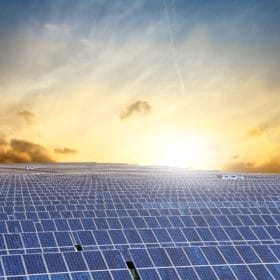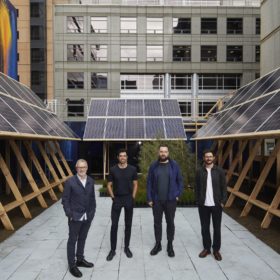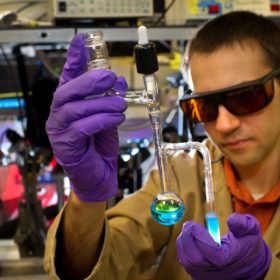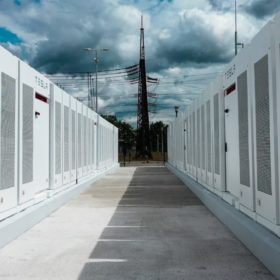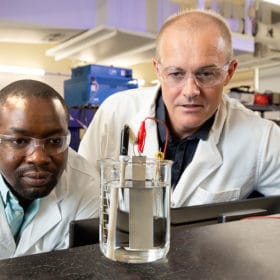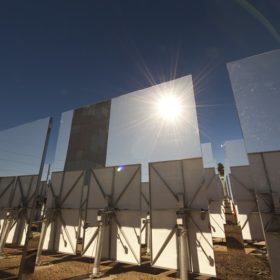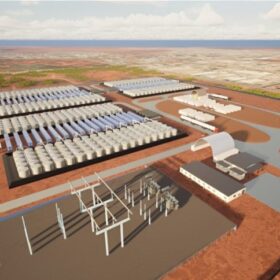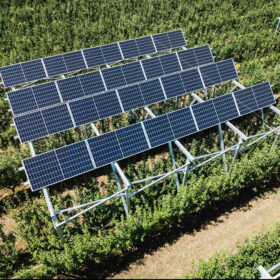Solar and wind together overhaul global hydro capacity
The latest set of clean energy statistics compiled by the International Renewable Energy Agency signal a changing of the guard when it comes to clean power, with legacy hydropower facilities overtaken by new intermittent renewables.
Solar PV driving green hydrogen to undercut gas, says latest BloombergNEF forecast
BloombergNEF’s latest modelling has found that solar PV is the key driver behind an accelerating cost decline in green hydrogen. The forecast shows green hydrogen’s cost declining by 85% by 2050, undercutting natural gas as well as both blue and grey hydrogen production.
Let there be light! And the research to harness it
Some of Australia’s most thrilling thinkers are scientifically investigating the applications of light and developing new light-absorbing materials. Like human investment in space travel the dedication to solar research is paying back beyond its remit. pv magazine talks to one far-reaching centre of excellence in the field.
AEMO publishes ‘Engineering Framework’ for accelerating energy transition
The Australian Energy Market Operator has published an engineering framework as it looks to conceive a broader framework for how the National Energy Market can facilitate the accelerating energy transition.
Here’s what Biden’s infrastructure bill offers solar and cleantech
The $2 trillion package includes a proposed 10-year extension of the ITC and PTC and calls for further incentives to add transmission capacity. Most solar advocates liked it, but one nonprofit panned it as being too industry-friendly.
Solar steals the show at Melbourne Design Week
An independent exhibition brought to Melbourne Design Week by a group of 15 of the city’s top architectural firms demonstrates the blueprint for Melbourne’s transformation to “A New Normal”. “A New Normal” is a plan to transform Greater Melbourne into a self-sufficient city by 2030.
Australian cleantech startup competition draws $50,000 grant for winner
A $50,000 development grant will be awarded to the winner of this year’s national ClimateLaunchpad competition, which aims launch early-stage cleantech startups into the market.
Clean energy technologies can provide grid security for less, study finds
New research shows renewables plus batteries would be able to offer Australia’s electricity grid the same energy security as coal and gas generators, leading to calls for regulatory changes.
Queensland scientists’ remarkable renewably powered carbon capture breakthrough
Scientists from the Queensland University of Technology have made a remarkable breakthrough in carbon capture and storage with a novel electrochemical process which can not only store carbon dioxide in water non-toxically with the power of solar or wind, but also produces by-products including green hydrogen and calcium carbonate, perhaps the key to decarbonising the cement industry.
Australian solar thermal technology funded by US government for major demonstration project
Concentrated solar thermal technology developed with input from CSIRO, the Australian National University and the University of Adelaide, has been funded for a commercial-scale test by the United States Department of Energy.

